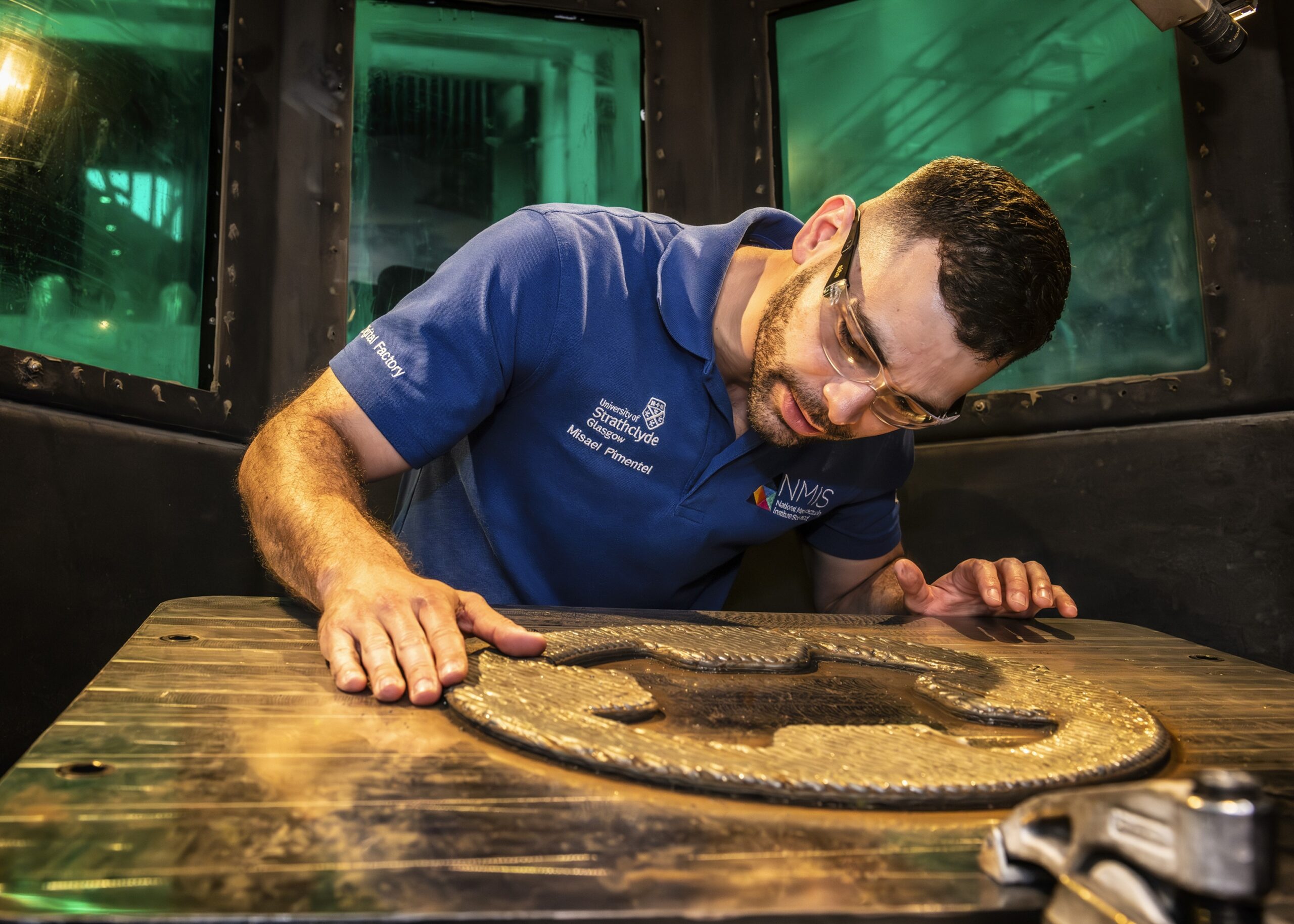A Scottish project using large-scale additive manufacturing for shipbuilding components has completed its second phase, demonstrating potential benefits for the maritime industry. The MariLight 2.0 project, led by Glasgow-based Malin Marine Consultants with support from the National Manufacturing Institute Scotland, focused on producing a topology optimized tapping ring.

Testing results showed the redesigned component achieved a 10% reduction in emissions, cut lead times by 90%, and reduced vessel weight by 13%. The tapping ring, which reinforces openings in vessel decks or tanks, was manufactured using Direct Energy Deposition-Arc (DED-Arc) technology at NMIS’s Digital Factory. This additive manufacturing process builds metal parts layer by layer using advanced welding techniques.
The component underwent rigorous hydrostatic and leak testing under sustained pressure, with Lloyd’s Register providing independent verification. Project partners included BAE Systems, Caley Ocean Systems, Siccar, Altair, and Hexagon Manufacturing Intelligence, each contributing specialized expertise in design optimization, computational modeling, and data sharing platforms.
“MariLight 2.0 showcases the real-world potential of large-scale additive manufacturing in the maritime sector. By combining advanced digital processes with rigorous certification protocols, we’ve demonstrated how this technology can support more sustainable, efficient production methods,” said Misael Pimentel, MariLight 2.0 project lead at NMIS.
The project was funded by the Department for Transport’s Clean Maritime Demonstration Competition (Round 4) and supports the UK’s commitment to achieving net-zero maritime emissions by 2050. The initiative aims to shift the maritime sector from traditional manual fabrication toward automated and more environmentally friendly manufacturing approaches.
Source: nmis.scot

